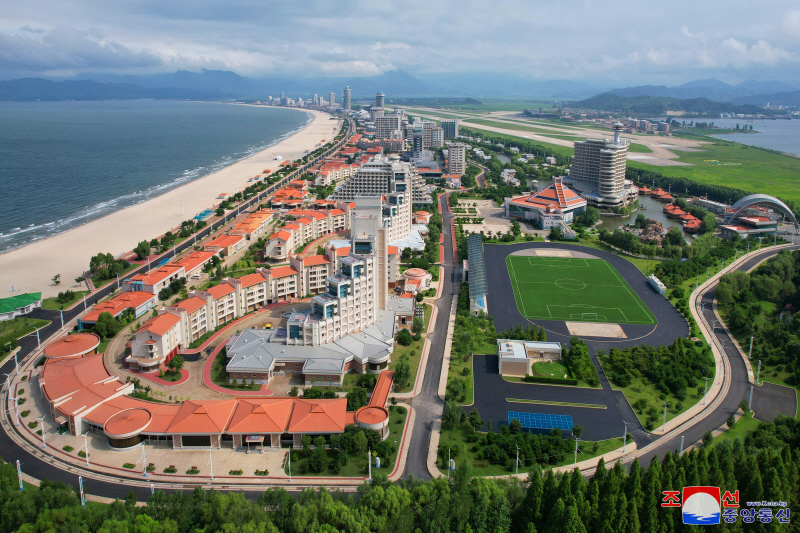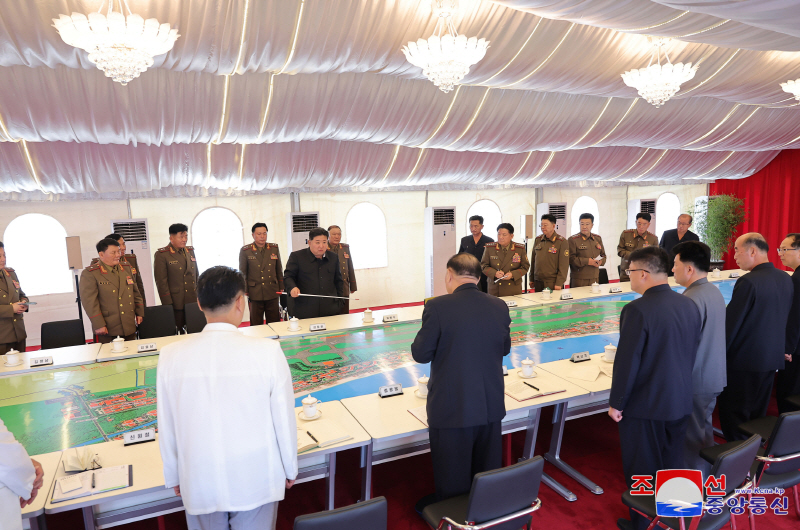North Korea has significantly increased its imports of bedroom furniture and feathers from China last month, raising speculation that the country might be preparing for large-scale accommodations aimed at boosting tourism revenue.
According to a report by Voice of America (VOA) on August 21, a detailed analysis of the General Administration of Customs of China’s recently released “July (North Korea-China) Trade Data” revealed that while overall trade between the two countries dropped nearly 20% year-on-year in July, imports of clothing feathers and bedroom furniture saw notable increases. The bedroom furniture likely refers to beds and other related items, while the feathers are presumed to be used in bedding.

Specifically, North Korea imported approximately $3.37 million worth of feather products from China last month, nearly quadrupling from $869,000 in June. Additionally, the import of bedroom furniture from China amounted to around $2.01 million in July, significantly exceeding the average monthly import value of $1.27 million recorded between January and June this year.
Last month, North Korean leader Kim Jong-un visited the construction site of the Wonsan-Kalma Coastal Tourism Zone, a major tourist area in North Korea that includes the famous “Myongsasipri” beach, and ordered preparations for its operation.
This was seen as a directive to accelerate the construction, which had been stalled due to the COVID-19 pandemic. At that time, North Korean state media reported that Kim held a meeting with accompanying officials, discussing practical issues with the aim of opening the Wonsan-Kalma Coastal Tourism Zone by May next year.
In addition, North Korea has been running a tourist program for Russian group tourists since February. Koryo Tours, an international travel agency that sells North Korean travel packages, also announced on August 14 that North Korea plans to resume international tourism to Samjiyon and other regions in the winter of 2024.

Given these circumstances, experts generally believe that North Korea’s increased imports of bedroom furniture and feathers may be linked to the construction of large-scale accommodations essential for revitalizing tourism. The possibility remains that North Korea might also further develop other tourist areas, such as the Mount Kumgang Tourist Zone, where South Korean facilities are being dismantled, or Samjiyon City, a hub for the Mount Paektu tourism project, which Kim Jong-un strongly criticized officials for last month.
Lim Eul-chul, a professor at Kyungnam University’s Institute for Far Eastern Studies, said, “This appears to be part of North Korea’s efforts to develop the Wonsan-Kalma Coastal Tourism Zone, which is one of their top priorities,” adding, “This can be interpreted as North Korea searching for ways to earn foreign currency despite the sanctions.”
Tourism in North Korea itself is not prohibited under sanctions. However, if “bulk cash” is funneled into the North Korean regime through tourism, it could be considered a violation of sanctions. Additionally, the provision of necessary insurance or financial support during travel may also raise concerns of sanction breaches.
BY YEONGGYO CHUNG, YOUNGNAM KIM [chung.yeonggyo@joongang.co.kr]




